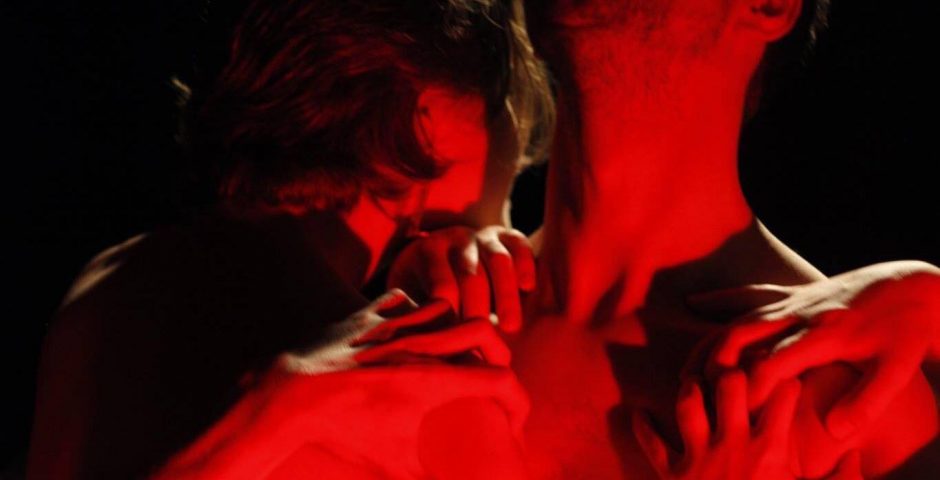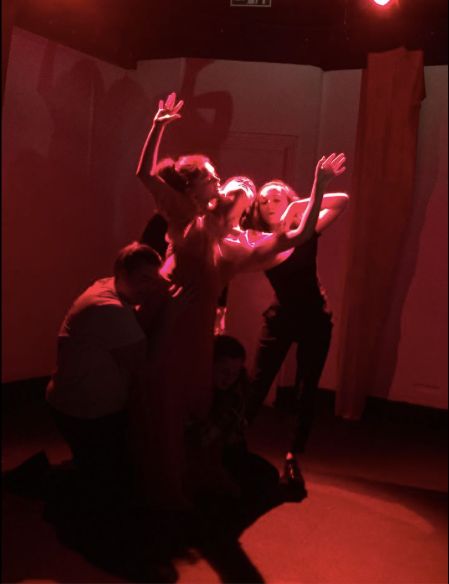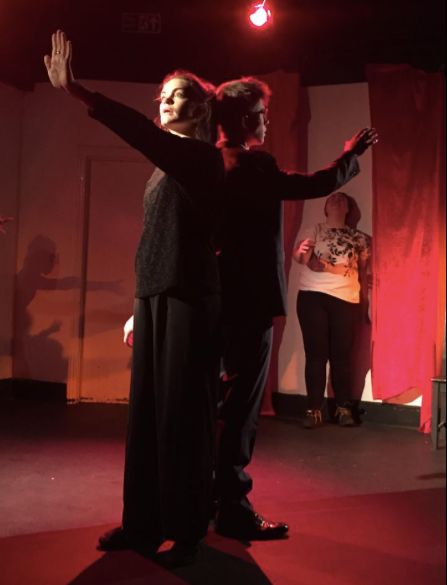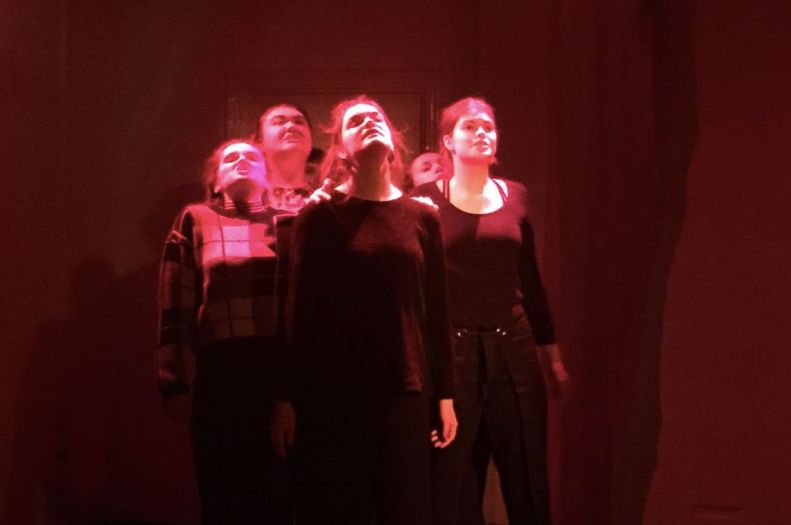
REVIEW: The Bacchae
A glorious exploration of sexuality, liberty, and divinity
Physical. Visceral. Ecstatic. This is what Bacchic ritual was supposed to be. This is what the adaptation of Euripidies' 'The Bacchae' channelled. A powerful commentary on ancient ritual and gender norms, the director (Amelia Hills) seemed also to be guided by experiences of today's society; from the male vilification of Maenad sexuality to the exploration of the role of the state in individual experiences, this ancient classic was flavoured with modern themes.
This timelessness – Hills' ability to maintain the contextual integrity of Euripides while encouraging the twenty-first century audience to empathise – was what I admired most about this production. Tragedies in translation are riddled with contemporary nuance and notoriously difficult for the untrained to understand. But not this adaptation. It was easy for the audience to follow the plot and to engage with the characters.

Photo credit: Megan Reidy
Dionysus (Rosy Sida) stole the show immediately – maintaining an unhinged poise, an almost unnatural fluidity in her movements, and wild expressions throughout. She provided comedic relief in addition to evoking fear through her divine presence. She was commanding but evinced vulnerability in the denouement.
Similarly, Agave (Georgia Vyvyan) came into her own after the play's climax, effortlessly sliding from breathy euphoria to wrenching pain in a second. It was here that the pure tragedy of the play was unmistakeable. As with all the Bacchae, her ability to act in unison with the chorus but draw singular attention when performing as her own character was admirable.

Photo credit: Megan Reidy
Pentheus (Ben Galvin) surprised me. I was originally underwhelmed, finding that the huge presences of Dionysus and the chorus detracted from his character. Only when he began to spar with the god did I realise that this was the point – his depiction of fragile masculinity, a man in power due to his circumstance rather than his skill, weakness – was everything it should have been. Moreover, as he became trapped tighter and tighter in Dionysus' web, his stiffness loosened into delectable madness.
The chorus was magnificent. It felt more enmeshed within the plot than in other tragedies. When the Bacchae sang, it truly was a spiritual experience. Haunting harmonies and jarring movements not only conveyed the reality of Bacchanalia, but excited the audience as they revelled in their own discomfort. All smeared with red paint (blood or wine? It really doesn't matter), their performance was electric.

Photo credit: Megan Reidy
A stunning expression of female sexuality and the power of women's rage, while staying true to Euripides' original intention, 'The Bacchae' is one to see before Christmas vacation. From the little details like Dionysus' golden hands to the loud and abrasive noises of "the scream", it missed nothing. 5* from me.
Cover photo credit: Johnny King









































